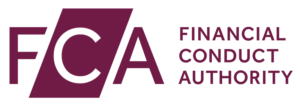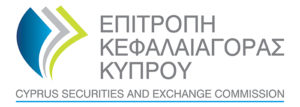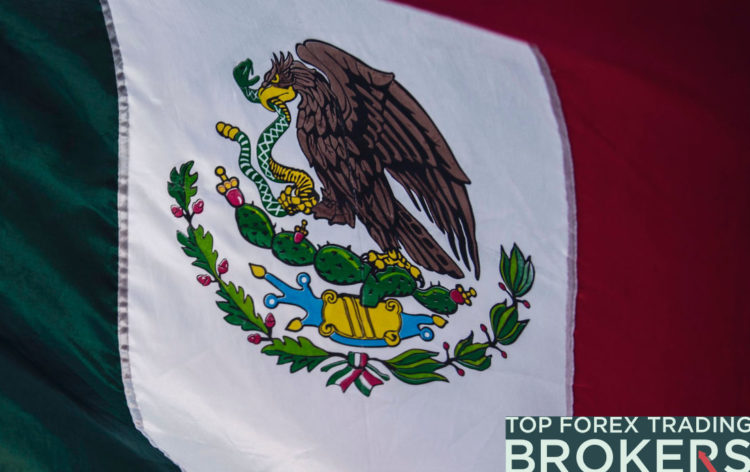While trading online it is essential to be in the safe hands. As the market is very competitive and has a lot of things to offer you, there are some things that the market can hinder you from unless you partner with the right companion. While starting trading online it is essential to start trading with the right broker, who will be the guide for you through the complex journey in the Forex markets.
In order to choose the right broker, the most essential thing to consider is the license and the regulations they comply with. This gives you the guarantee that you will not be cheated and scammed by the broker. Also, this gives the guarantee that if something goes the wrong way, you can always address the regulatory authority and can always ask for the proper answers to your questions.
While there are many brokers available in the market, not all of them are regulated by one single authority. Though it is considered that the highest financial regulatory authorities are the Cyprus Securities and Exchange Commission also known as CySEC, and the Financial Conduct Authority also known as FCA.
Usually, traders do not understand the full importance of the regulatory authority and moreover di no understand their roles and involvement in the process. In this article, we will try to outline some of the most important differences between the CySEC license and the FCA license.
Financial Regulators
Among dozens of financial regulators across the whole world, there are two major regulators, which have already occupied our hearts and minds. Those two regulators deserve our trust and loyalty, due to their outstanding performance and very objective approach towards the subject. While for many people the financial regulatory body can be one single, quite often the question like “what is the difference between those two”, “how do they act differently” arise. In order to fade away the uncertainty, there are some of the major things you have to know.
First of all, it should be mentioned that all the top-rated brokers opt for the license oCySEC or FCA. This happens for a reason. The huge benefits that come with getting the regulator cover most of the questions. Though we will still define them one by one.
What is FCA?
 The Financial Conduct Authority or FCA meaning a financial regulatory agency in the UK, though it operates separately of the UK Governments. The agency is financed by charging fees to members of the financial services industry. The regulator provides services to the brokers and maintains the integrity of the financial markets in the United Kingdom.
The Financial Conduct Authority or FCA meaning a financial regulatory agency in the UK, though it operates separately of the UK Governments. The agency is financed by charging fees to members of the financial services industry. The regulator provides services to the brokers and maintains the integrity of the financial markets in the United Kingdom.
The FCA is structured in the following way. Regulatory authority rakes in the Banks of England’s Prudential Regulatory Authority and the Financial Policy Committee. The agency currently has the responsibility of over 2.2 million people, employed in more than 58,000 businesses that contribute around 65.6 billion pounds sterling in annual tax revenue to the economy of the country.
In March 2020, the FCA introduced new strong customer authentication rules aiming to reduce fraud and improve security for customers by requiring European banks to offer customers three layers of authentication when customers make online payments over €30 in Europe:
- PIN code or a password
- Biometrics such as a fingerprint
- A physical device such as a phone
The authority has significant powers, including the power to regulate conduct related to the marketing of financial products. It is able to specify minimum standards and to place requirements on products. It has the power to investigate organizations and individuals. In addition, the FCA is able to ban financial products for up to a year while considering an indefinite ban; it has the power to instruct firms to immediately retract or modify promotions which it finds to be misleading and to publish such decisions.
Further, the FCA is able to freeze assets of individuals or organizations under investigation whether or not they are innocent or guilty. The authority has been responsible for regulating the consumer credit industry since 1 April 2014, taking over the role from the Office of Fair Trading.
What is CySEC?
 Cyprus Securities and Exchange Commission or CySEC is the financial regulatory authority of Cyprus. The agency was launched back in 2001 as a part of section 5 of the Cyprus Securities and Exchange Commission Law as a public corporate body. After becoming the member state of the EU back in 2004, CySEC had to comply with the MiFID regulation framework. This gave the firms registered in Cyprus, access to all European markets. The disadvantage of this process was the changes in the financial situation of the agency. Previously knowns tax heaven was far from being heaven from that moment on.
Cyprus Securities and Exchange Commission or CySEC is the financial regulatory authority of Cyprus. The agency was launched back in 2001 as a part of section 5 of the Cyprus Securities and Exchange Commission Law as a public corporate body. After becoming the member state of the EU back in 2004, CySEC had to comply with the MiFID regulation framework. This gave the firms registered in Cyprus, access to all European markets. The disadvantage of this process was the changes in the financial situation of the agency. Previously knowns tax heaven was far from being heaven from that moment on.
Many retain fore brokers and binary options brokers work with SySEC, though in 2012 there were some changes concerning the amendments in the common frameworks regarding classification of binary options as financial instruments. This resulted in the regulation of all binary options platforms operating in Cyprus. This gave CySEC the opportunity to be the first-ever regular, allowing binary options instruments to be recognized on a global scale.
CySEC comes with certain responsibilities that have to be fulfilled by the agency, those are:
- To supervise and control the operation of the Cyprus Stock Exchange and the transactions carried out in the Stock Exchange, its listed companies, brokers and brokerage firms.
- To supervise and control Licensed Investment Services Companies, Collective Investment funds, investment consultants, and mutual fund management companies.
- To grant operation licenses to investment firms, including investment consultants, brokerage firms, and brokers.
- To impose administrative sanctions and disciplinary penalties to brokers, brokerage firms, investment consultants as well as to any other legal or natural person who fall under the provisions of the Stock Market legislation.
Within the recent amendments, CYSEC was granted the power over the entities that it regulated in that it may carry out the investigation as well as share any findings with other international regulators.
And yet, let’s talk about differences
 The main difference between the two regulatory authorities will be visible and has already been revealed very recently, with the final happening of Brexit. This meant the UK closing doors for many companies and businesses that have previously been operating in the country. Though this has happened very recently and there is not yet very vivid evidence that the Brexit has definitely affected markets.
The main difference between the two regulatory authorities will be visible and has already been revealed very recently, with the final happening of Brexit. This meant the UK closing doors for many companies and businesses that have previously been operating in the country. Though this has happened very recently and there is not yet very vivid evidence that the Brexit has definitely affected markets.
On the other hand, let’s talk about some major differences and then observe the ongoing situation with Brexit and two regulatory authorities. Yet, the main difference is always the markets, the amount, the quality, and the witness of the available markets. In the case of Brexit, the markets offered by CySEC tend to be relatively more, as the UK is no more a very desirable and affordable place for businesses. Thus trading through an FCA regulated broker will be slightly limited.
The financial agency will have to work a lot in order to repair the contacts and to establish partnerships with different European countries in order to offer the costumers almost the same market and opportunities it used to have before Brexit.
For example, ESMA which is the financial regulator of the entire European Union, will not have any authority over the FCA anymore. Because of this, several agreements on guidelines will have to be made. Unless that kind of agreement is achieved, the FCA will be able to offer only the UK’s market and maybe some other countries that are not within the EU, though this is yet uncertain.
Unlike the FCA, CySEC brokers have a wider market to operate in and thus have a lot more opportunities. Cyprus based financial authority definitely has some more attractive perspectives and less trouble within the nearest future, unless they, of course, decide to Cexit as well.
Accounts
 While segregated accounts are no much of a big issue anywhere in the world, as they have become very common for all regulated forex brokers, some of the issues might still occur with transactions and banking.
While segregated accounts are no much of a big issue anywhere in the world, as they have become very common for all regulated forex brokers, some of the issues might still occur with transactions and banking.
Segregated accounts are the accounts of the brokers. It is logical to think that tall the money that you deposit and pay as a fee should be transferred somewhere. Most probably it is the brokers account. Yes, this is very easy and very true. Though, the main concern is about the privacy and specification of the account.
CySEC regulated broker is not required to have any segregated account for the bank transfers, while the FCA requires all of the partner companies to hold an account.
This means that according to the FCA, brokers need to have separate accounts for the fees, deposit, and charges, everything that the costumers transfer basically. With these accounts, the brokers do not have access to the funds on that account. According to the CySEC regulations, it is all about the broker’s free will. They can choose to have an account for the costumers or can have not.
Overall, the FCA does it for the broker’s safety and the funds’ security. In case of some force-major situation the funds located on the segregated accounts are safe and sound. While other funds can be hacked and the company can go bankrupt, the costumers’ funds will remain untouched. This is all about customer support and high social responsibility. Usually, many brokers address creating segregated accounts, as it delivers a more transparent and safe vibe.
Licensing
While both CySec and FCA regulated brokers need to go through certain procedures in order to get the license, the processes are very different from each other.
AT first, it’s all about money. The price difference is something that many brokers consider in the first place. Simply because of being located in Cyprus, CySEC license is way cheaper than the FCA. This should be logical at some point, as the UK is generally one of the most expensive countries in the world, and the taxes, as well as the markets, have very high rates. Cyprus is on the other way, one of the best places to start the business and to base the company. Thus, the license from CySEC is relatively cheaper.
On the other hand, labor is something bot regulators have in common. FCA’s list of approved companies as well as the CySEC regulated brokers are all required to employ the local staff in their companies. This is a mandatory field for everyone to fix. This is one of another contributor to the price. As mentioned above, Cyprus is one of the handy and cheap countries to start your business. Thus saving a company and having employees in Cyprus is almost twice as cheap as in the UK.
It happens sometimes that at the very beginning, companies choose to get the CySEC certificate. Though, after some time has passed, they have grown up and can already afford to pay some extra money for extra safety and reliability, they also get the FCA licenses. It usually happens that some of the top brokers hold both licenses, which is one of the best options to choose from.
Offers and Promotions
 Every company and agency despite the filed has some policies regarding promotions and different bonuses. This is very simple and one of the most common methods of attracting more costumers. Though the brokers can not set their own standards on bonuses and can not offer the enormous cash prizes or unwise promotions. Thus, both regulatory authorities have their own approaches and policies for bonuses and promotions.
Every company and agency despite the filed has some policies regarding promotions and different bonuses. This is very simple and one of the most common methods of attracting more costumers. Though the brokers can not set their own standards on bonuses and can not offer the enormous cash prizes or unwise promotions. Thus, both regulatory authorities have their own approaches and policies for bonuses and promotions.
Under the ESMA regulations in the past, both of them were forced to somehow restrict it, but now, since the market has become a lot freer they’re starting to allow all companies to offer at least some kind of promotions. Yet, due to FCA regulation the bonuses and promotions tend to be much more attractive and much bigger.
The size of the bonuses is the main difference between the two regulators. Both of them allow the brokers to offer certain bonuses, though how big the bonuses can be is determined by Cyprus or the UK. Brokers licensed by CySEC tend to have smaller bonuses. This is because of the existing financial restriction. Even though the bonuses might seem small, they are sometimes even more popular than the large ones.
The forex broker regulated by the FCA offer larger bonuses, though they are less popular than the smaller ones offered by the CySEC regulated brokers. Big bonuses are not popular with the local traders. The main reason is that the traders trading with the FCA regulated brokers is more experienced ones, thus they no longer are interested in bonuses. They have chosen their directions.
On the other side, the beginners who still trade with FCA regulated brokers, are okay with having small bonuses, rather than paying a lot for the withdrawal of a large number of bonuses.
Cashing Out
 How fast do you want to withdraw your funds once you are done with trading for some time? Instantly right? How important is it to have timely withdrawal options? It should be one of your priorities. The speed of withdrawal plays an important role for many brokers as well as traders.
How fast do you want to withdraw your funds once you are done with trading for some time? Instantly right? How important is it to have timely withdrawal options? It should be one of your priorities. The speed of withdrawal plays an important role for many brokers as well as traders.
This is also one of the biggest differences between the two regulatory authorities. The FCA has a policy, according to which the brokers can not intervene in the withdrawal process at all. This means that they can not postpone or delay any withdrawal requests. The withdrawal should be instant and should only take the time which is dedicated to the specific payment method.
On the other side, CySEC licensed brokers to have the freedom of choice, whether intervening into the withdrawal process or not. They can postpone the transaction for some time. Sometimes this might take even a month, which is very inconvenient and very irritating for the trader.
Summary
Just like in any field, companies vary Many companies have different features and have some things in common as well. As for the financial regulators, both agencies FCA and the CySEC offer full services for the brokers. There are certain differences regarding the markets, prices, and some powers, though the major function of keeping the broker and the trader safe, the process transparent, funds secure and information private are all checked.
The choice of the regulatory authority fully depends on the market and the revenue of the broker. As for the trader, we can assure you that any broker having any of those two licenses is valid, is legit, and is safe to trade with.












Comments (0 comment(s))